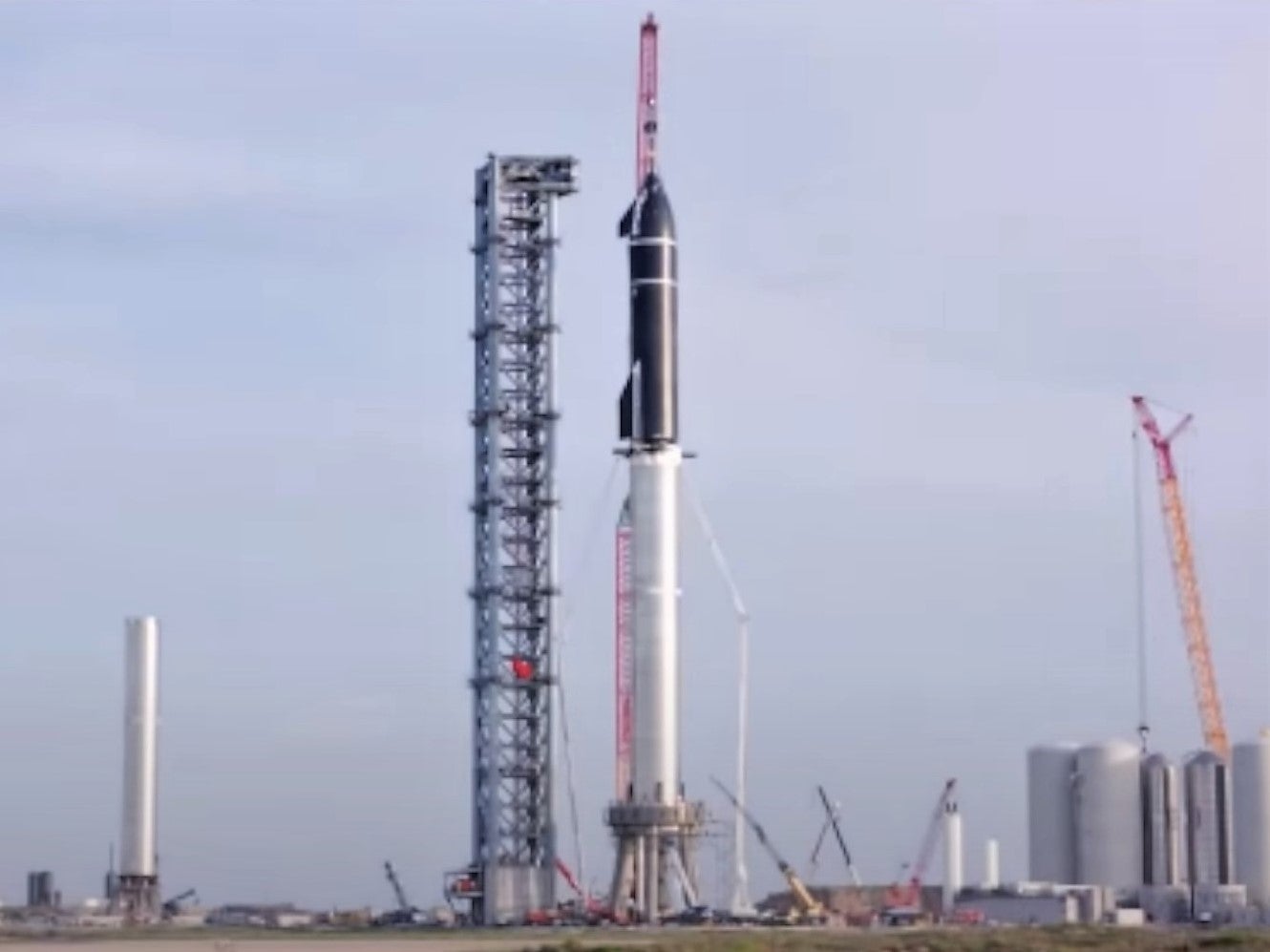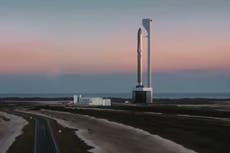SpaceX Starship launch date for ‘biggest rocket ever’ set for January, Elon Musk says
Orbital flight of Starship SN20 is latest step towards billionaire’s vision of a human colony on Mars

The first orbital flight of SpaceX’s Mars-bound Starship rocket will take place in January, Elon Musk has announced.
Starship SN20 will be the most powerful rocket ever built when it lifts off in 2022 from the Starbase facility in Boca Chica, Texas, with the SpaceX boss telling the National Academy of Sciences on Wednesday that it will have more than twice the thrust of the Saturn V rockets used to launch people to the Moon during Nasa’s Apollo program.
“The idea behind this is to have the first fully and rapidly reusable rocket... that’s really the holy grail of rocketry,” he said.
“The first orbital flight we’re hoping to do in January. We’ve completed the first orbital booster and first orbital ship and we’ll be complete with the launchpad and launch tower later this month, and then we’ll do a bunch of tests in December, and then hopefully launch in January.”
Musk revealed that the current configuration of 29 Raptor engines on the base of the Starship booster will be expanded to 33 for the orbital launch, making it “the biggest rocket ever designed”.
SpaceX has already performed several sub-orbital flights using early prototypes of the Starship rocket, though only one of them launched and landed successfully without exploding.
“There’s a lot of risk associated with this first launch, so I would not say that it is likely to be successful, but I think we’ll make a lot of progress,” he said.

SpaceX is developing Starship as a mass-production rocket capable of transporting people and cargo anywhere in the Solar System, and is already building a factory capable of producing up to 100 a year.
The rockets are currently being developed for Nasa’s Artemis mission, which aims to return humans to the Moon and establish a permanent presence their within the next few years, but the ultimate aim is to use fleets of Starships to establish a human colony on Mars.
“In order for life to become multi-planetary, we’ll need maybe 1,000 ships, or something like that,” Musk said. “The overarching goal of SpaceX has been to advance space technology such that humanity can become a multi-planet species and ultimately a space-faring civilisation, and to make true the things that we read about in science fiction.
“Long term, it’s essential for preserving the light of consciousness. Eventually something will happen to Earth, hopefully not soon, either natural or man-made that would cause the end of civilisation. The probable lifespan of civilisation is much greater if we’re a multi-planet species.”
Musk revealed that SpaceX is also working on an “interesting project” with Dr Saul Perlmutter at UC Berkeley that would see a massive telescope launched into space aboard a Starship rocket, which has 10-times the resolution of the Hubble telescope.
He said: “[Starship] has the potential to affect human destiny in a very profound way.”
Join our commenting forum
Join thought-provoking conversations, follow other Independent readers and see their replies
Comments


Bookmark popover
Removed from bookmarks